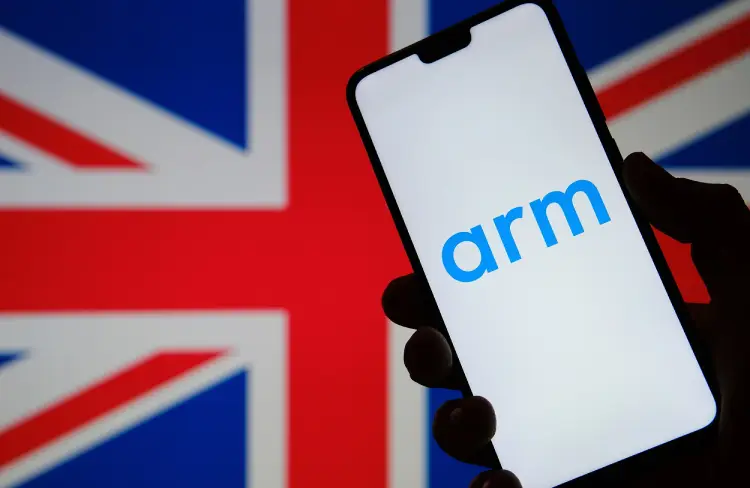
The UK government has made what could be a crucial intervention on the proposed sale of British chip design giant Arm to US rival NVIDIA. It has issued a public interest notice on national security grounds, triggering a detailed investigation which could lead to the deal being blocked. For Arm’s current owner SoftBank, this latest hurdle adds to the regulatory headaches it is facing around the world, and may lead it to abandon the deal and relist Arm on the stock market.
An investigation into the deal had been expected after the Competitions and Markets Authority (CMA) launched a call for evidence in January, asking for interested parties to make their views known. Yesterday’s announcement by secretary of state for culture, media and sport Oliver Dowden means a formal probe by the CMA begins immediately and will run until 30 July. A government statement released yesterday said Dowden “is intervening in the sale on national security grounds”, adding “in reaching this decision, he considered advice received from officials across the investment security community.”

The outcome of this probe will establish whether a secondary investigation into the deal is warranted. That is where the government could call the whole thing off.
Arm national security risk: is this intervention warranted?
While a government probe had been expected in the UK, and similar actions are likely to be taken by regulators in the US, China and Europe, the mention of national security concerns has raised eyebrows. “It’s an interesting one because most of the chips used by the UK military for UK security purposes are manufactured by other companies in other countries anyway,” says Alan Priestley, vice president analyst at Gartner, who covers the semiconductor sector.
One concern for the government, Priestley says, could be the location of Arm’s IP. Though currently owned by a Japanese company in SoftBank, Arm’s corporate headquarters remain in the UK, meaning its IP is, nominally at least, British. “It would seem unclear at the moment whether Arm’s IP will be US or UK-owned after the takeover,” says Priestley. “The government may be considering the impact that transition could have, especially given the ups and downs we’ve seen in the US administrations in recent years.”
Arm and NVIDIA have been at pains to say that Arm’s status as a UK company will not be practically impacted by the takeover, but the Cambridge-based company is likely to fall under the remit of the powerful US Committee on Foreign Investment (CFIUS) when the deal is completed. CFIUS may be able to restrict where and how Arm designs are used in products made in foreign countries.
Could Arm go public again?
The proposed takeover has also encountered difficulties in China. A joint venture with local investors to help sell the company’s products there, Arm China’s ownership has been the subject of an ongoing dispute since last year which has yet to be settled. The FT reported last year that Chinese regulators will not clear the NVIDIA takeover while the dispute continues.
Arm was a public company before SoftBank took it over in 2016. Given these hurdles, there is a growing possibility that it could relist if the NVIDIA deal proves too tricky to complete, says Mike Orme, who covers the semiconductor market for GlobalData.
“All in all, it is now more likely by the day that SoftBank will fall back on its last resort and float Arm on the stock market,” Orme says. “Protracted and intractable problems with Arm China could take years to resolve,” he says, adding that “without resolution of these the deal can’t go through.”
In addition to regulatory hurdles, the takeover also faces opposition from some of Arm’s biggest clients. “There is the problem that leading Arm customers such as Apple, Qualcomm, Samsung actually do have misgivings over conflicts of interest,” he says. “It beggars the imagination that NVIDIA and Softbank didn’t clear this hurdle cleanly before announcing the deal.”
Priestley is sceptical that the deal will be completed for similar reasons. “I’d be surprised if it went through, but it’s still early days,” he says. “They’ve said that it could take up to 18 months, which is a long time for the chip industry – most deals go through in 12 months at the most. I think this reflects the amount of administrations involved and the competition concerns it creates for a few of the major semiconductor businesses in the market.”






